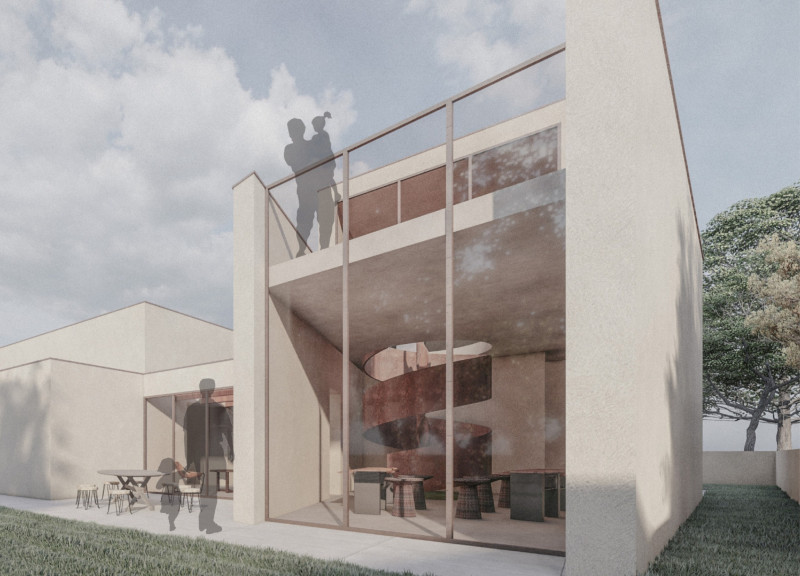5 key facts about this project
The Olive Guest House is designed to immerse guests in the experience of exploring olive oil, from its production processes to tasting events. This dual function not only enhances the visitor experience but also fosters an appreciation for the local culture. The design supports various activities, including workshops, tours, and tastings, promoting interactive engagement with the region's traditions.
Architecturally, the guest house is characterized by a well-considered layout that balances public and private spaces effectively. The building's orientation maximizes natural light and offers stunning views of the surrounding landscape. Public areas are strategically positioned to encourage social interactions among guests, while private zones ensure a sense of retreat and tranquility. This careful zoning reflects an understanding of how visitors navigate space and the importance of creating a community atmosphere while respecting individual privacy.
The materiality of the Olive Guest House further enhances its connection to the landscape. A selection of local materials has been employed to maintain authenticity and reduce the environmental impact associated with transportation. Concrete provides structural integrity and a sense of permanence, while wood adds warmth and a tactile quality to the interiors. Plaster finishes contribute to a seamless flow between spaces, maintaining the simplicity of the design. Expansive glass elements create visual links to the exterior, fostering a dynamic relationship between indoor environments and the natural surroundings.
Unique design approaches are evident throughout the project. Notably, the use of a spiral staircase serves as a focal point within the guest house, which not only connects various levels but also acts as an artistic expression of movement and fluidity. The main tasting room is designed as a multifunctional space that accommodates both small group gatherings and larger events, exemplifying the flexibility of modern architectural considerations. This room is essential, as it embodies the core mission of the guest house: to provide a platform for learning and sharing about olive oil production.
Sustainability is a central theme in the Olive Guest House's design philosophy. The integration of rainwater collection systems ensures efficient water usage, significantly minimizing the reliance on external resources. Energy efficiency is further enhanced through natural ventilation strategies, allowing fresh air to flow through the building, which reduces the need for mechanical cooling systems. These design choices reflect a commitment to creating a structure that is not only low-impact but also one that educates visitors on sustainable practices.
In summary, Famiglia Verde's Olive Guest House is an exemplary architectural project that marries function with cultural appreciation. The design expertly accommodates the diverse activities associated with olive oil, all while maintaining a strong connection to the local environment and community. Every aspect, from material selection to spatial organization, has been meticulously crafted to create an inviting and educational atmosphere. Those interested in gaining deeper insights into the architectural plans, sections, designs, and innovative ideas behind the Olive Guest House are encouraged to explore the project presentation for further details.


























